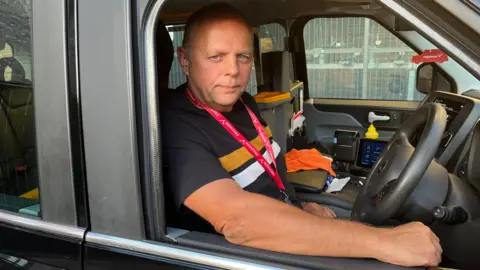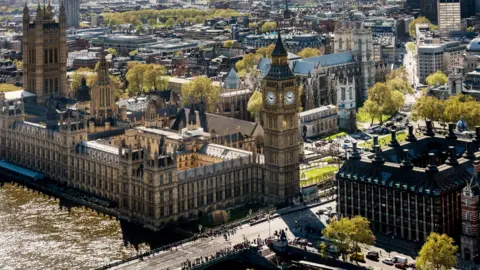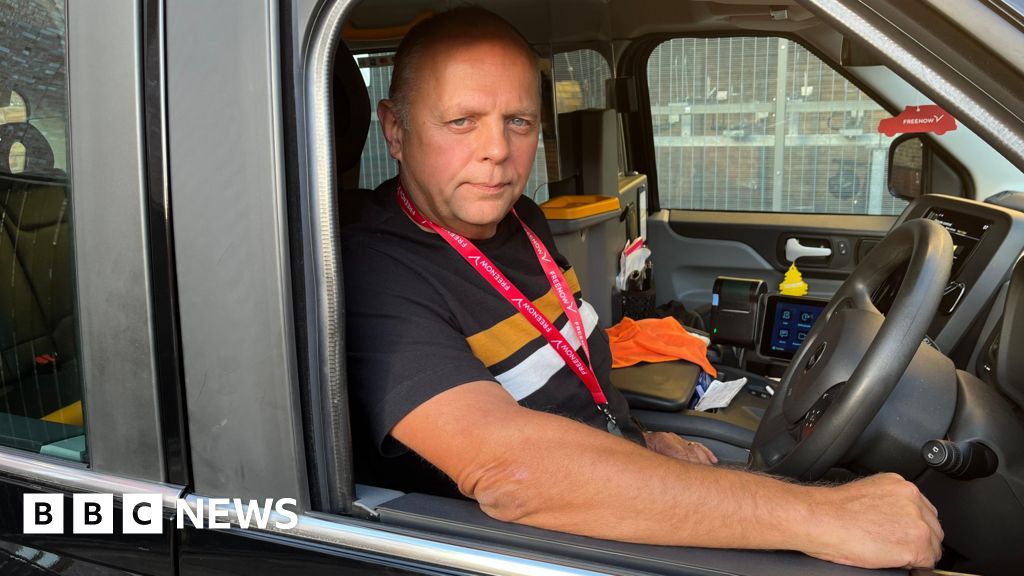Gem O’ReillyLondon and
Jess WarrenLondon
 Gem O’Reilly/BBC
Gem O’Reilly/BBCLondon taxi drivers are being trained to spot the signs of harassment, in order to support passengers and protect themselves.
Kamaria Ahmed, training officer at Stop Hate UK, said the campaign with private-hire firm Freenow came after the charity saw a rise in reports of antisemitism, Islamophobia and homophobia.
“People have a real genuine fear of leaving their homes, of going down their usual routes of commute, because the instances have just increased so much, that people feel an increased sense of vulnerability,” she said.
Brian McDonough, 59, a Freenow driver from Twickenham in west London, said the training was very important and helped everybody.
Between September 2024 and the end of August 2025, the Met Police recorded more than 21,000 instances of hate crime in London, down 17.4% on the 12 previous months.
The highest proportion of those took place in Westminster, where there were 6.5 reported offences per 1,000 people.
Mr McDonough said the training supported private-hire drivers to help their passengers.
“It makes the drivers aware of what to do in a situation that maybe they’ve not been in before, or they’ve been in before, but not dealt with it,” he said.
“The training involved assessing passengers as they got in the vehicle, especially women and vulnerable people that may have been the victim of harassment while they were out on the street, or had been followed by somebody at the station.”
He said that passengers who appeared visibility upset would be supported by drivers, and if an incident had occurred, would be encouraged to contact the police or Stop Hate UK.
 Getty Images
Getty ImagesLondoner Yatna said she was recently verbally abused by a man at a London Underground station.
“I would probably feel safer getting in a taxi because he’ll pick me up and take me home, whereas on a Tube, that guy could have got on the same Tube as me and followed me home,” she said.
Yatna said she felt taxi drivers were her “first port of call” for help if she was in a bad situation while out.
She added: “It is a bit more expensive; I think I paid like £30 for an Uber to get home once but then I think about my safety now.
“I think I’d rather pay £30 than be assaulted, or not get home, or be sat a platform with an undesirable.”

